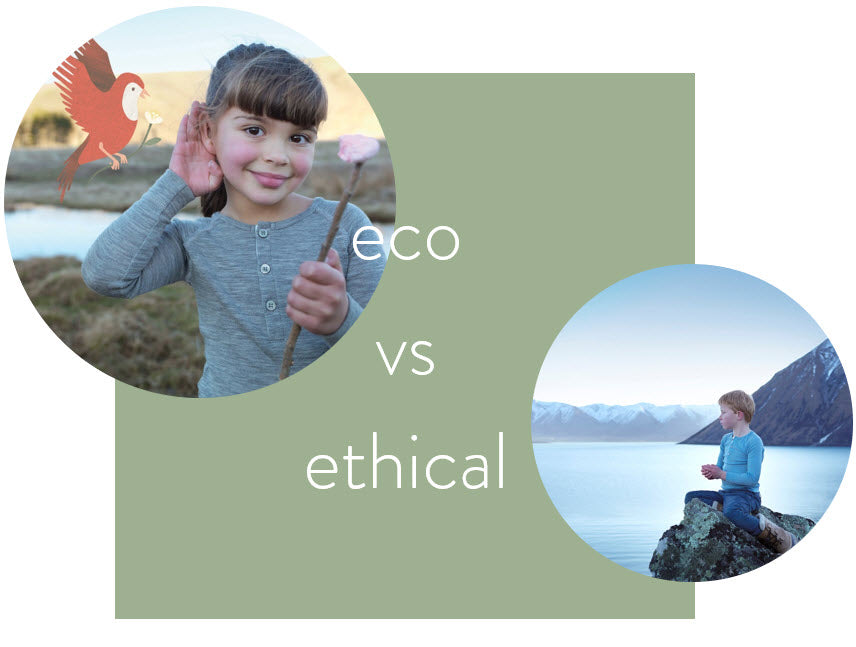Your Cart is Empty

It can be very easy to confuse ethical fashion with eco fashion.
While these terms may seem very similar, they are actually not.
Knowing the difference can play a big role in helping you become a more responsible consumer when buying clothes for yourself or your children.
The main differences to keep in mind are these:

The word "eco" specifically refers to the environment, meaning that it does not necessarily need to involve ethical working conditions, fair pay for workers who make the garments etc.
This means that if clothing is labelled as eco-friendly or -conscious, they don’t have to disclose if the products were made in harsh, unhealthy factory conditions, by under-aged workers etc.
While eco-fashion focuses on the environment, often focusing on the use of raw materials without the use of chemicals, ethical fashion is more focused on:
While there are many other terms used interchangeably, knowing the major differences between these may help you make better decisions. And even though you will not be able to change the world by purchasing a garment, every contribution makes a difference, especially when you know, as a parent, that your money will not be supporting factories that use child labour or have inhumane working conditions.
At Roots & Wings Merino, we believe in ethical fashion and part of that means that we are 100% transparency in our manufacturing process. You can read more about our sourcing and manufacturing here, as well as our ethical factory in New Zealand and the skilled artisans that make our clothes by hand.